Windows 11 Recall Finally Launches on Intel and AMD Processors
With Intel and AMD processor based Copilot+ PCs, Windows 11 Recall is now officially rolled out to Microsoft. This expansion of Recall to Windows 11 expands the capability of this to a much broader user base through the latest Windows 11 update, including those using Intel, AMD and Qualcomm processors, and was originally limited to Qualcomm processors in late November.
Windows 11 users in the Dev Channel can now use the 26120.2510 (KB5048780) update to take advantage of Windows Recall, the feature that allows them to take “snapshots” of their PC activities, with the ability to find them later. The expansion follows several months of problemsolving and refinement to fix problems with similar features encountered earlier.
Security and Privacy Enhancements
Windows 11 Recall, which followed tackling some implementation challenges, comes with far more strengthened security features. To access snapshot, the system requires Windows Hello facial recognition and BitLocker and Secure Boot are required. Recall will have these security measures in place, and to help protect user privacy and Windows 11 Recall’s functionality.
To help keep your privacy, Windows 11 Recall is an extremely carefully designed system from Microsoft. The feature’s models are automatically installed with the update, but the snapshot function must be manually enabled by the users. In addition to that, Windows 11 Recall offers the ability to modify the time that snapshots are saved and how long the snapshots will be kept. Sensitive information such as credit cards, passwords and personal ID numbers are explicitly excluded from snapshots by the system.
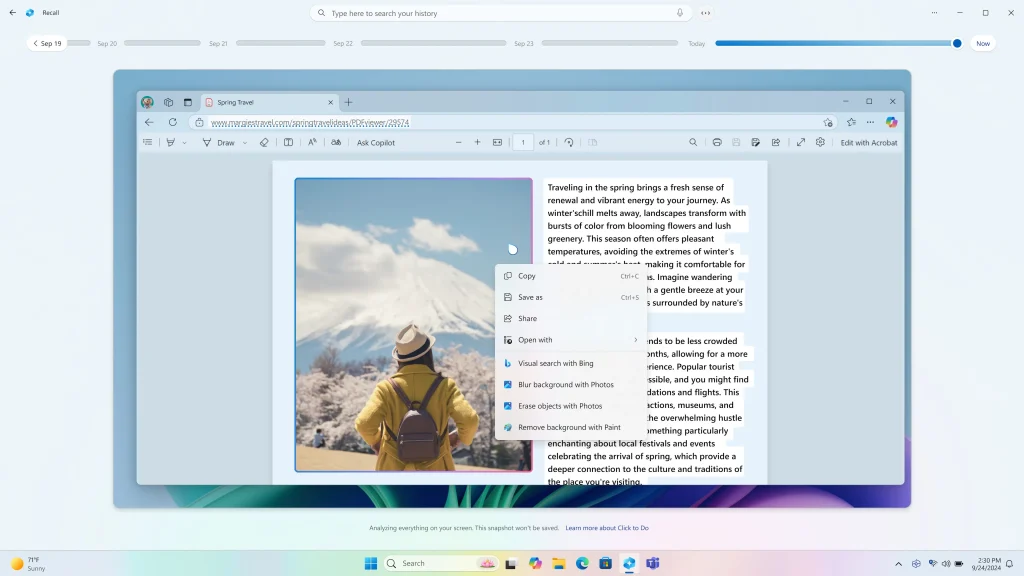
Advanced Functionality
In the latest version of Windows 11 Recall, Windows users can now interact directly with elements in their snapshots by touching or clicking elements. Users can turn static snapshot content into active desktop elements as they copy text or save images using the Windows key plus mouse click. The feature being more practical for everyday use is what makes this functionality great.
With this new implementation, many of the worries that contributed to holdups on earlier versions have been addressed, making for a much improved product. The system for snapshots now runs smoother and is better integrated with the rest of the features that Windows 11 already supports.
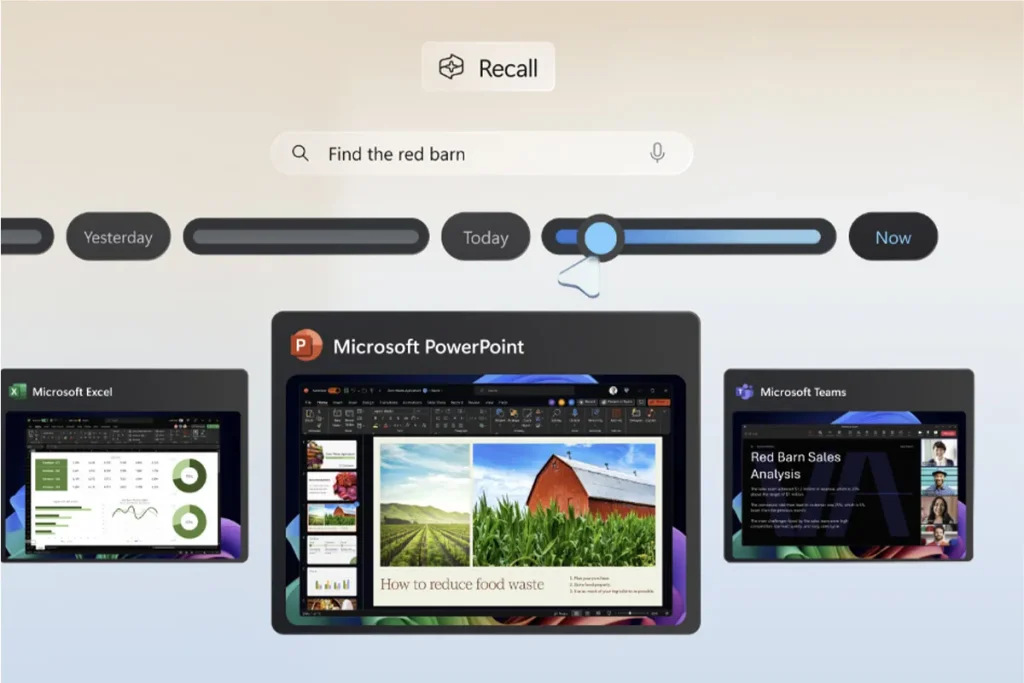
Development Journey and Challenges
There have been a series of major challenges along this path to broader release of Windows 11 Recall. The preview release was originally planned for June before it was delayed, retracted, delayed again, and retracted again due to technical problems and a string of controversies. Their main worries dealt with rights to privacy, US intelligence and data protection, with which Microsoft has been very busy.
As such, the development team had to overcome particular challenges on ensuring that Windows 11 Recall would perform well on multiple processor architectures without degrading performance or security standards. Microsoft has obviously made an effort to overcome these technical hurdles, as they’ve previously made successful expansion to Intel and AMD processors.
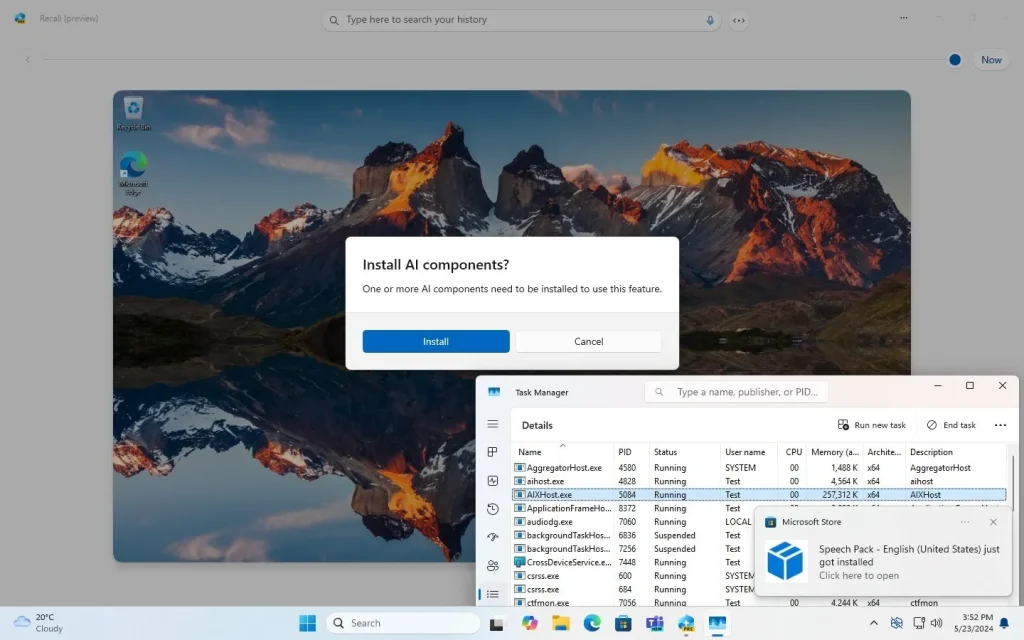
Implementation and Availability
Currently, the feature is only available to users interested in trying the Windows 11 Recall through the Windows Insider Dev Channel. The controlled rollout of the feature permits Microsoft to keep an eye on its performance in addition to collecting feedback from the new user base.
The system requirements for Windows 11 Recall include:
- A compatible Intel or AMD processor
- Windows Hello capability
- BitLocker encryption
- Secure Boot enabled
- Windows 11 Insider Dev Channel membership
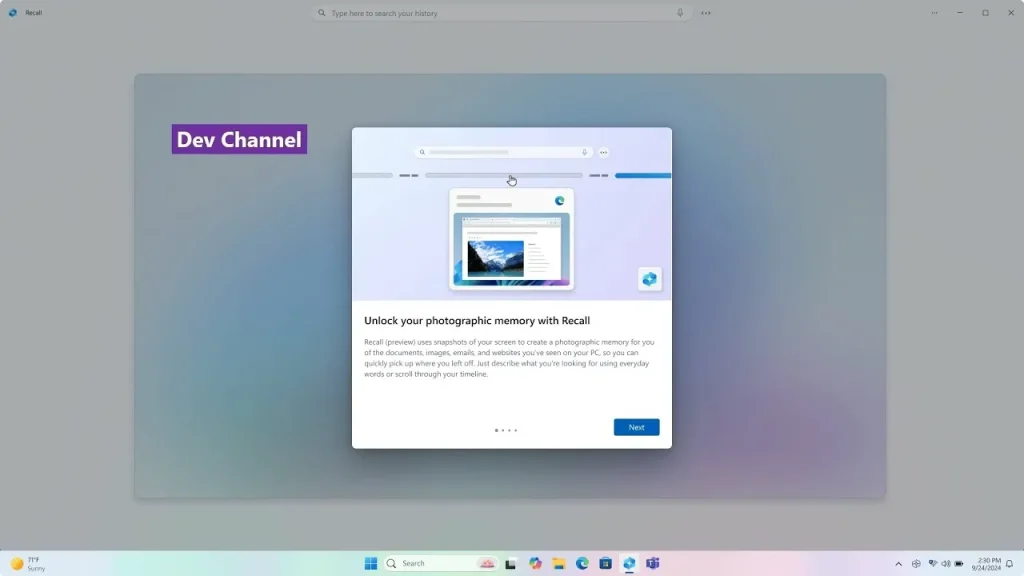
Future Implications and Impact
Windows 11 Recall extending to Intel and AMD processors is a big deal in Microsoft’s AI integration strategy. If available more broadly, this could fundamentally shift how people interact with their Windows 11 devices, and manage digital activities.
Microsoft says it will use user feedback to enhance the feature and will be looking ahead to extend its capabilities. Details of future updates have not been finalised, except for the addition of more functionality and further security enhancements, according to the company.
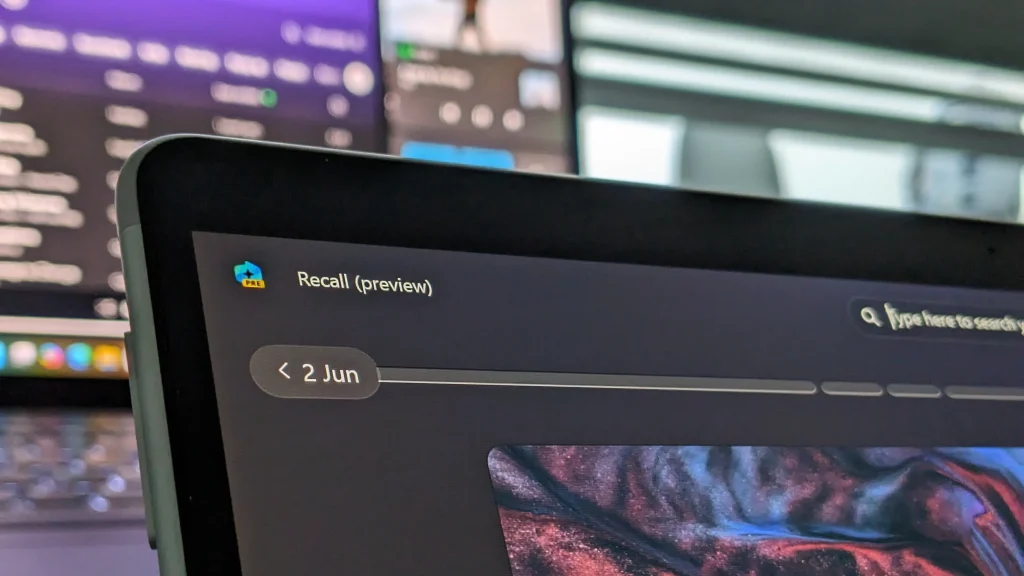
User Experience and Reception
The current version of Windows 11 Recall was informed by early feedback from Qualcomm based systems. Users particularly liked the feature for helping them see where they came from and what they did on their PCs. It is anticipated that the expansion to Intel and AMD systems will attract more diverse feedback and more use cases.
With AI features, Microsoft says it wants to make them available to users without undermining security like we saw happen in the past. This, to me, is the most important part of Windows 11 Recall. Time will tell how this feature develops as more users come on board and provide their feedback on real world usage.
